IHT – Is your estate planning up to date?
Chancellor Rachel Reeves announced a series of changes to the Inheritance Tax (IHT) rules which she said will add £2billion a year to government coffers.
Among those changes is the inclusion of inherited pensions for IHT purposes from April 2027. There will also be new rules on combined business and agricultural assets, such as farms, that need to be considered.
The changes to the IHT regime prove a good starting point when it comes to turning your attention to estate planning.
Now it’s a good time to ensure it is up to date and is fit for purpose. It should meet all your wishes when it comes to the distribution of your assets through your family.
IHT is charged at 40 per cent on the property, possessions and money, external of somebody who has died, above a £325,000 threshold.
It is only charged on the part of the estate that lies above the threshold. For example, on an estate worth £335,000, the tax would apply to the additional £10,000.
The chancellor said this threshold will remain in place for an extra two years, until 2030. The rate of IHT is reduced to 36 per cent for estates where 10 per cent or more is left to charity.
The additional nil rate band for passing on the family home to direct descendants will also remain at £175,000 until 2030. This means that married couples and civil partners will generally not pay inheritance tax where their combined estate is valued below £1 million.
However, the residence nil rate band continues to be tapered where the value of the estate exceeds £2m.
Gifts made by an individual in the seven years before their death are classed as ‘potentially exempt transfers’ and can give rise to an IHT liability on death. Despite speculation in the run up to the chancellor’s speech there will be no changes to this.
However, it is proposed that, from April 2027, most undrawn pension funds and death benefits will be included within the value of a person’s estate for IHT purposes.
In a controversial move, the government is also planning the reform IHT agricultural property relief (APR) and business property relief (BPR) from April 2026. Relief of up to 100 per cent is currently available on qualifying business and agricultural assets with no financial limit.
However, from April 6, 2026, it is proposed that 100 per cent relief will only apply to the first £1m of combined agricultural and business property, with the relief reducing to 50 per cent on the value that exceeds £1m
Under the current rules, small family farms – including land used for crops or rearing animals, as well as farm buildings, cottages and houses – have been handed down through the generations without attracting IHT.
The change has been condemned by the National Farmers Union. Its president Tom Bradshaw said: “The current plans to change Agricultural Property Relief (APR) and Business Property Relief (BPR) need to be overturned and fast.
“It’s clear the government does not understand that family farms are not only small farms, and that just because a farm is an asset it doesn’t mean those who work it are wealthy.
“Every penny the chancellor saves from this will come directly from the next generation having to break up their family farm. It simply mustn’t happen.”
• To discuss any issues around IHT or other tax issues raised by the Budget please contact me on 01772 430000.




